|
Last year had some amazing highs, but I had some trying health and other struggles at times, and it is always hard to write in a vital congregational placement (especially with the demands of my pioneering ministry) so I'm very grateful for the encouragement and patience of Elenie Poulos and Kate Gleeson (co-editors) in enabling me to contribute an article to a small collection of essays on 'Religion and Politics after marriage equality: contemporary challenges in religious freedom'. My essay (which can be accessed here) built out of the tough experience of some of us, focuses on the marginalisation of transgender people and queer people of faith in queer activism and mainstream Australian churches during and after the Australian marriage-equality plebiscite. I entitled it: 'Climbing out from being thrown under the bus: queer faith futures in a transphobic political world'.
0 Comments
 It was good to attend the first day of the APSA Workshop on Religion and Politics After Marriage Equality at Macquarie University this week - although I was unable due to illnes to be at the second day - with many thanks to Dr Eleneie Poulos and Kate Gleeson for putting together such a brilliant program, and to all the other speakers for sharing their insights. Much to think about on this topic with a new federal government. My own paper - 'On climbing out from under the bus: queer faith futures in a cisgender world' can be read here 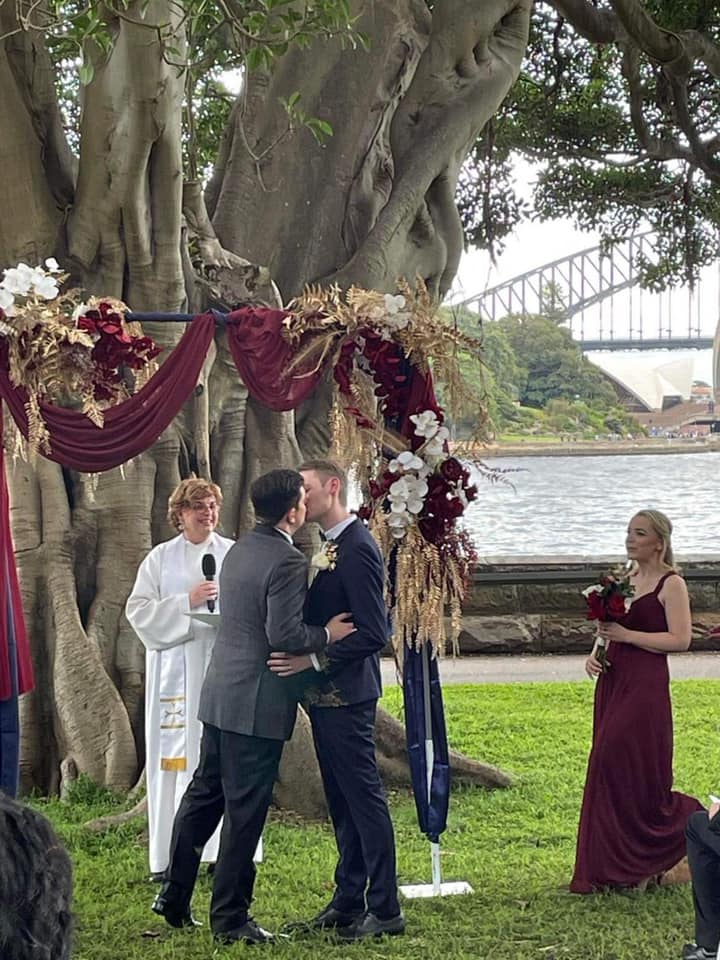 Such a great joy to preside at this wedding today (with communion too), in such a beautiful special setting - and, in this case, finally beating the pandemic (restrictions, postponements, and one of the grooms getting COVID-19 just a couple of weeks ago!) plus the wettest start to a Sydney year on record. #lovetriumphs #loveislove #reasonstolovetheunitingchurch 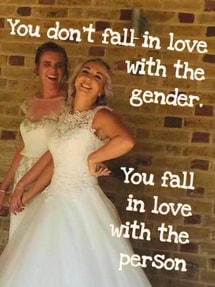 After marriage equality law passed, I was delighted, but cut ever deeper to the heart every time someone excluded from Australian Anglican rules asked if I’d preside at their wedding. It is one significant reason I now rejoice in sharing in Uniting Church ministry . It’s three decades since, as a priest, I first blessed a same gender relationship (a gorgeous couple in a former coal mining village on the top of England) so even blessings (aka ‘crumbs from the hetero/cis table’) are really just not enough anymore. So I was hugely delighted today to talk with a wonderful gay couple about their forthcoming wedding at which I’ve been asked to preside - so good to meet their needs for a priest in Sydney. Our queer God will find a way (With love and prayers for those continuing to work for change in every faith community) 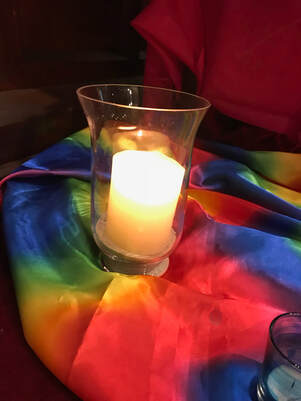 2020 promises to be something of a watershed year in the development of Anglicanism, both in Australia and internationally. For this year sees both an Australian General Synod meeting and the next Lambeth Conference, each of which look to be significant occasions in continuing Anglican 'culture wars', particularly in relation to the persistence of narrow ideological hang-ups towards sexually and gender diverse people. In addition, in Australia, the Anglican Church's Appellate Tribunal will rule on the legitimacy of two very mild steps taken by the dioceses of Wangaratta and Newcastle: respectively an agreed liturgy for blessings of those now able to be married under civil law under the marriage equality legislation now happily in place in Australia; and space for clergy in all such faithful relationships to able to use their gifts freely in recognised ministry in the Church, without fear of disciplinary action. Meanwhile, with proposed religious discrimination legislation before Federal Parliament, Anglican and other Churches will rightly come under further scrutiny for the degree of their collusion (and, in some cases, active leadership) with the continuing queerphobia and repression of LGBTIQA+ people in Australian society. Sadly, LGBTIQA+ Christian voices are typically restricted or denied in these developments, not least within Church debates themselves. Thankfully, like their counterparts overseas, Equal Voices Anglicans have been growing in strength and visibility, offering some hope and consolation in what will be a lengthy struggle for sanity and dignity. As this year unfolds, it is indeed hoped that fresh affirming expressions will be increasingly manifest. For the moment, on behalf of Equal Voices Anglicans, I offer a list of helpful resources for use, from both Australian and international sources: including You Tube and written stories, theology, small group study materials, and pastoral care resources - download here, or from the Equal Voices Anglican website here. standing with Equal Voices for genuine religious freedom in the face of proposed legislation31/8/2019 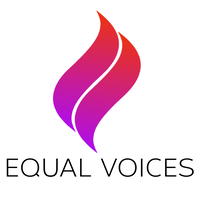 Sadly the Australian Federal Government seems intent on once more causing trouble for its LGBTIQ+ citizens. For the recently released draft Religious Discrimination Bill again reflects the militant drive of the Religious (and wider) Right rather than a desire to find a pathway to recognise all Australians as equal in law, respect and value. After the pain of the unnecessary postal survey campaign on equal marriage, there has been little let up for LGBTIQ+ Australians as some others have pursued what often seems like a deliberate vendetta. Significant elements and figures in Australia's Christian community continue to be major offenders in this, obsessed with their own narrow sectarian agendas and preservation of power and privilege. The consequence is further understandable alienation of many from religious bodies. LGBTIQ+ people of faith consequently also find ourselves further marginalised, sometimes not always finding 'safe space' within the wider LGBTIQ+ community. The Right's drive to posit the nonsense of 'God v the Gays' and a repressive 'LGBTIQ+ agenda' thus currently bears fruit. Thank God therefore for the existence of bodies such as Equal Voices, the national network of LGBTIQA+ Christians and allies, together with other LGBTIQA+ people of other faith, and partnerships with some other key LGBTIQA+ groups and leaders. Together we seek genuine freedom for all. As a member of the Equal Voices national board, I thus felt myself impelled yesterday to speak out with others in our movement about the failings of the Federal Government's approach. This follows my participation in shared advocacy with other LGBTIQA+ people (as in my speech at the Brisbane rally recently). See here below further for the words of our media release... 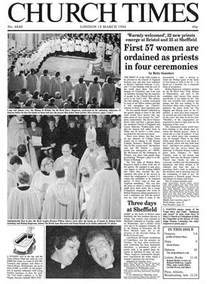 Jim Thompson. our lovable bishop who ordained me deacon in London's East End, used to say that not a week went by without him wondering why he was still in the Church, and yet not a day or two without experiencing something of the amazing gifts which come with being a priest. I thought of this when I was reminded this week of the 25th anniversary of the passing of the ordination of women measure in the Church of England's General Synod. Writing in the Church of England Newsletter this week, Emma Percy, Chair of WATCH (Women and the Church) in the UK, commented pertinently about the joys then, and the achievements and frustrations since. As she reflects: It is now 25 years later, almost half of my life, and the young people I work with have never known a Church of England without women priests... (now) part of culture appearing in TV, adverts, novels; both fictional and real examples. Yet, tensions over the role of women still continue in the church... The debates around women bishops meant that the church’s continuing uncertainty about really welcoming women into all orders of ministry was played out for the wider world to see. Sadly, this means that many younger people think the church is out of step with gender equality. 25 years on I rejoice that the church has benefited, and continues to benefit, from the priestly ministry of so many women. I rejoice in the ministry I have been able to have. I hope that we can continue to encourage women to serve in this way and that the Church of England will find ways to truly celebrate the momentous decision made 25 years ago. Those are memories and reflections with which I concur. It is a mixed bag. Indeed, as my first grandchild comes to be baptised (in Christ Church Gosford) tomorrow, and in the wake of the Australian postal vote on marriage equality, it leaves me pondering: what will be the shape of the Church in another 25 years?...  One of the interesting features of criticism raised by some to aspects of 'progressive orthodox' Christian faith is the perceived relationship between love, God and Judaeo-Christian scripture. Progressives can certainly be guilty of simplistic and sentimental thinking, including syllogistic fallacies around such themes. Yet it appears to me that conservative theology sometimes runs the risk of driving a wedge between the God of scripture and healthy, life-giving, human love. In a recent local marriage equality discussion for example, it was somewhat extraordinary to hear a vigorous opponent assert a radical difference between God and human love. In responding to a particular interpretation of 1 John 4.16b - 'God is love, and those who abide in love abide in God, and God abides in them' - they were right in drawing attention to the wider context of that verse, including the prevenient nature of God's love and primary focus in Christ. However such divine love was precisely embodied in the very human life and love of Jesus, expressing the presence of such love throughout creation, in all kinds of different ways. Part of the religious genius of historic Christian Faith has been the ability to hold these different elements in tension, understanding the creative paradox of i John 4.12 that 'No one has ever seen God; (yet) if we love one another, God lives in us, and his love is perfected in us.' Both love, and sin, in my view, are far more complex and mysterious than many 'plain Christian' theologies allow for. Perhaps part of the contrasting responses of Christians lies in how holy scripture is itself conceived. One young man for example said to me recently that the Bible and Christian Faith were not really about love but about salvation. He is on a genuine journey of exploration into these matters and we had a cordial and mutually illuminating conversation. Yet such a view reflects a very common but restricted framework which some Christians have imposed, and continue to impose, on the Bible. In reality of course such a lively and diverse set of scriptures have many contrasting themes. Salvation is a vital, and perhaps particularly distinctive Christian, one. Surely however salvation is but one way of approaching love, rather than the reverse? For all its misuse over the centuries, what has always 'saved' holy scripture is the longing for, and experience of, God which human beings have found in it. Rather than being the Procrustean structure of a salvation machine, the Bible is witness to the eternal love story of God, humanity and creation, embodied, for Christians, most fully in Jesus Christ. 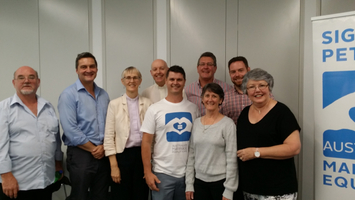 'When someone starts talking about principles, watch your back!' This was one of many 'bon mots' I learned from Geoff Garner, my delightful supervising vicar when I was a curate in the East End of London. Partly what he was saying was that when human beings become agitated, for or against a controversial proposal, humanity and genuine love go out the window. So called 'principles' and 'values' become used as weapons: at best providing insulation from genuine engagement, or, often, simply being used to harm others. Geoff himself knew well to his cost how this worked. As a founding member of LGCM (originally the Gay Christian Movement), as an inter-faith adviser to the Bishop of London, and in the open and humane way he ministered with others, he was frequently a target of others' internal difficulties and defensiveness. For Geoff, and for me, this is far from how Jesus lived, taught and acted. Last weekend I spoke at the Toowoomba Marriage Equality event, sharing my own, positive, perspectives on what is too often an area of Christian 'principled' resistance and denial (click here for my address on that occasion). At the meeting, I was once more struck by the qualities of love, joy, and kindness so many LGBTI+ people have for one another and others. Since then, I have once more been overwhelmed by the generosity and warmth of fellow marriage equality supporters with whom I have corresponded. This, I believe, reflects the immense wellspring of love within the LGBTI+ community which still longs for full release. It is a powerful contrast with the spirit of some Christian circles which persist in turning their backs on this wonderful source of renewal for us all. Most certainly, there is also Christian discomfort about marriage equality which is neither bigoted nor defensively armed with principles. One of my close Anglican colleagues for example is wary of marriage equality legislation because they feel some advocates are themselves equipped with principles (such as exaggerated 'rights' discourses) which they can wield like aggressive weapons. Perhaps, but I saw none of this last weekend in the keynote addresses of Marriage Equality leaders such as Shelley Argent and Rodney Croome. Instead they spoke with humour and humility about those things which touch all our lives: love and family, pain and joy, being valued, recognition and relationships. These are not abstract principles but the realities of life which bind us together. One Christian leader who has upbraided me since last weekend accuses me, among other things, of being infected by humanism. It is one accusation - unlike many others - which, with qualifications, I am happy to own. For a healthy Christian humanism is surely an antidote to picking up the weapons of principle. Like my mentor Geoff Garner, I see in Jesus the embodiment of the humane as well as the the holy, someone who stood not on principle but in the power of love: in that sense being both fully human as well as fully revealing of the mystery of divine love which transcends all our human differences (male and female, Jew and Gentile, and all the rest - including queer and straight). Julia Baird, in a recent article, reflects, in a typically incisive and balanced manner, on the challenges of discerning what is 'free' speech and what is 'hate' speech in the marriage equality debate. My sense is that part of the answer is in returning with prayerful discernment to the Christian injunction about 'speaking the truth in love' (Ephesians 4.15). Too often this can mean Christian justification for simply being mean, aggressive, demeaning, or worse. When I hear or read the words 'I just want to say this to you in Christian love', I am also instinctively tempted to duck for cover, just like Geoff Garner. It is hardly that I do not care about truth and truth-speaking. Part of my problem is that parts of the Church do not really want to explore truth and sometimes actively seek to silence the truths of others. No, the heart of the matter is what we mean by love. Is it truly an openness to genuine truth-seeking and the fresh insights of the Holy Spirit, or is it only a cover for ego and group fear and defensiveness? Whatever our views on marriage equality - and, sadly, the debate is likely to go on in the Church as a whole for ages after it is settled in Australia in law - when we come to 'speaking the truth in love', perhaps we need to spend more time on that last word love. It is too easy to leap to principle without love. For those of us who share in pastoral care, the ability to share a prophetic word is also important. Yet we need to be kind and compassionate in how, as well as what we say. For me, much maligned 'political correctness' often seems really to amount to no more than being polite and respectful to others - precisely the opposite of the Pharisaism, wielding principles like weapons, which Jesus so abhorred and transcended. We are not all agreed, not will we be, with or without a plebiscite. Most Christians however, for and against, genuinely seek to honour God and our conscience. So let us seek the truth indeed, but let us be gentle with it.  I am regularly grateful to my fellow ACSQ colleague, and Dean of Brisbane, Peter Catt for his typical measured, insightful and delightful handling of contemporary social ethical questions. Here (below, on video) is Peter's contribution to the recent public forum on Marriage Equality, organised in August this year, by Parents and Friends of Lesbians and Gays (PFLAG), at the Uniting Church, New Farm. The church's Reverend Chris Holden and some parishioners were in the audience to show their support, as were ordained clergy from multiple denominations. Penny and I sent our apologies, due to engagements in Toowoomba, but we continue to support the Marriage Equality movement and welcome the shedding of light, rather than heat, on this controversial but important question. In addition to Peter, speakers featuring in the public forum included Prime Minister Tony Abbott's sister Christine Forster, Human Rights Commissioner Tim Wilson, a Brisbane grandmother, Graham Perrett MP, psychologist Paul Martin, a Christian mother and others. Politicians from across the political spectrum were also represented, with speeches by Graham Perrett MP, Teresa Gambaro MP (in the audience), and a letter of support from Senator Larissa Waters read out. All of the videos from the forum can be viewed here http://www.pflagbrisbane.org.au/resources-multimedia/video |
AuthorJo Inkpin is an Anglican priest serving as Minister of Pitt St Uniting Church in Sydney, a trans woman, theologian & justice activist. These are some of my reflections on life, spirit, and the search for peace, justice & sustainable creation. Archives
July 2024
Categories
All
|
 RSS Feed
RSS Feed